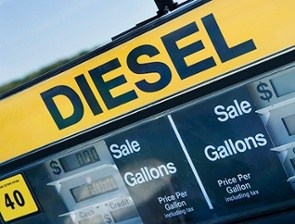What Is Cetane and Why Does It Matter?
Cetane is a colorless, liquid hydrocarbon of the alkane
We asked mechanical engineer Mark Nyholm, AMSOIL Product Manager – Heavy Duty, to elaborate on the importance of understanding cetane and why AMSOIL carries Diesel Cetane Boost in its diesel products line.
If diesel engines operate better with higher cetane values, why is most diesel fuel only between 40 and 45?
Mark Nyholm: This is a really great question and I believe it comes down to economics from the perspective of the fuel refinery. If the crude oil they have will provide a cetane value of, let’s say, 40 and today’s engines run at optimum efficiency with a cetane value of 48, what incentive does the refinery have to improve the cetane value? Will the market bear the increase per gallon of diesel if the refinery adds cetane improver? The answers really are “none,” and “not really.” Most diesel owners don’t have a clue what cetane does for them let alone what is the appropriate number they should have for their engine. Since cetane value is not published at the pump, all diesel owners know is to pull the green-handled ULSD pump and fill up the tank. The limit was set so that all fuels could reasonably achieve this minimum 40 number without adding a bunch of cetane improver to it. That value I also imagine was determined by the EMA to be “acceptable” for operation, even though not ideal.
Who is this product designed for? OTR truckers primarily or hardcore diesel-truck enthusiasts?
MN: Typically enthusiasts will buy cetane improvers. Now, you will find enthusiasts in about every market out there, so it’s hard to narrow down which market buys the most in volume. If I were to guess, I’d say the two most popular applications that use cetane improvers are turbodiesel pickups and class 8 OTR trucks.
How does increased cetane reduce smoke and emissions and improve fuel economy?
MN: Cetane number is a measure of combustion efficiency. The higher the number the better potential for each and every droplet that is sprayed into the combustion chamber to burn and produce power. The more efficient that fuel burns in the combustion chamber the less possibility to produce smoke and byproducts of combustion that the exhaust after treatment system must manage. The more of that fuel that burns the better power output and better possible fuel mileage you can expect to achieve from the engine.
To learn more or purchase AMSOIL Cetane Boost, visit our web page here.
Visit amsoil.com/diesel for more information on all our AMSOIL products for diesel owners.






